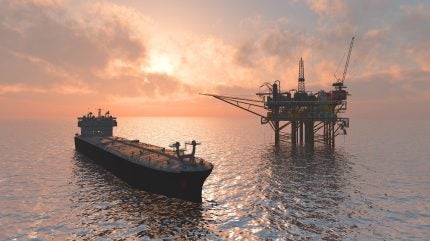
TotalEnergies and its in collaboration consortium partners have announced the Final Investment Decision (FID) for the second phase development of the Atapu and Sépia offshore fields in Brazil’s Santos Basin.
The decision marks a significant step in the development of these pre-salt fields, with the introduction of two new floating production storage and offloading (FPSO) units, each with a capacity of 225,000 barrels of oil per day.

Discover B2B Marketing That Performs
Combine business intelligence and editorial excellence to reach engaged professionals across 36 leading media platforms.
Operational since 2020 via the P-70 FPSO, the Atapu field is set to receive the Atapu-2 FPSO as part of its second phase development.
Petrobras operates the Atapu field with a 65.7% stake while TotalEnergies holds a 15% stake. Shell owns a 16.7% interest in the project, Petrogal has a 1.7% share, and PPSA has a 0.9% stake.
The Sépia field, which was commissioned in 2021 through the Carioca FPSO, is 16.9% owned by TotalEnergies. With a 55.3% stake, Petrobras is the field operator, followed by Petronas (12.7%), QatarEnergy (12.7%), and Petrogal (2.4%).
The second development phase, Sépia-2, will involve a new-built FPSO.

US Tariffs are shifting - will you react or anticipate?
Don’t let policy changes catch you off guard. Stay proactive with real-time data and expert analysis.
By GlobalDataWith an all-electric configuration, the two FPSO units, which are scheduled for commissioning in 2029, are designed to minimise greenhouse gas emissions.
The FPSO units will feature technologies such as closed flare, waste heat recovery, cargo oil tank gas recovery, and variable speed drive for compressors and pumps.
TotalEnergies exploration & production president Nicolas Terraz said: “The decision to launch Sépia-2 and Atapu-2 is a new milestone in our strong growth story in Brazil, a core area for the Company thanks to its world-class low-emission and low-cost oil resources.
“Following the startup of Mero-2 in late 2023 and the upcoming startups of Mero-3 in 2024 and Mero-4 in 2025, Brazil will soon account for more than 200,000 barrels of oil equivalent per day (boepd) in equity production for the Company.
“At their plateau Sépia-2 and Atapu-2, the tenth and eleventh FPSO for TotalEnergies in Brazil, will contribute to maintain TotalEnergies production in this key country above 200,000 boepd.”
In 2024, Petrobras selected Seatrium to build the P-84 FPSO platform for installation in the Atapu field, and P-85 FPSO platform for the Sépia field in the Santos Basin.





